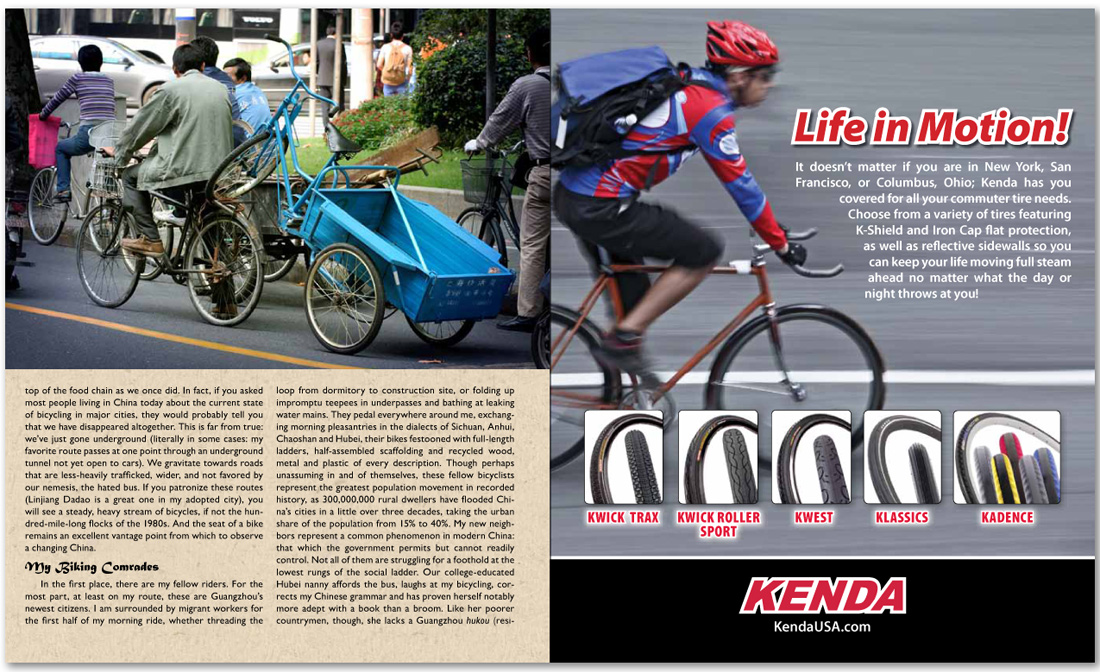


top of the food chain as we once did. In fact, if you asked most people living in China today about the current state of bicycling in major cities, they would probably tell you that we have disappeared altogether. This is far from true: we’ve just gone underground (literally in some cases: my favorite route passes at one point through an underground tunnel not yet open to cars). We gravitate towards roads that are less-heavily trafficked, wider, and not favored by our nemesis, the hated bus. If you patronize these routes (Linjiang Dadao is a great one in my adopted city), you will see a steady, heavy stream of bicycles, if not the hundred-mile-long flocks of the 1980s. And the seat of a bike remains an excellent vantage point from which to observe a changing China.
My Biking Comrades
In the first place, there are my fellow riders. For the most part, at least on my route, these are Guangzhou’s newest citizens. I am surrounded by migrant workers for the first half of my morning ride, whether threading the loop from dormitory to construction site, or folding up impromptu teepees in underpasses and bathing at leaking water mains. They pedal everywhere around me, exchanging morning pleasantries in the dialects of Sichuan, Anhui, Chaoshan and Hubei, their bikes festooned with full-length ladders, half-assembled scaffolding and recycled wood, metal and plastic of every description. Though perhaps unassuming in and of themselves, these fellow bicyclists represent the greatest population movement in recorded history, as 300,000,000 rural dwellers have flooded China’s cities in a little over three decades, taking the urban share of the population from 15% to 40%. My new neighbors represent a common phenomenon in modern China: that which the government permits but cannot readily control. Not all of them are struggling for a foothold at the lowest rungs of the social ladder. Our college-educated Hubei nanny affords the bus, laughs at my bicycling, corrects my Chinese grammar and has proven herself notably more adept with a book than a broom. Like her poorer countrymen, though, she lacks a Guangzhou hukou (resi-